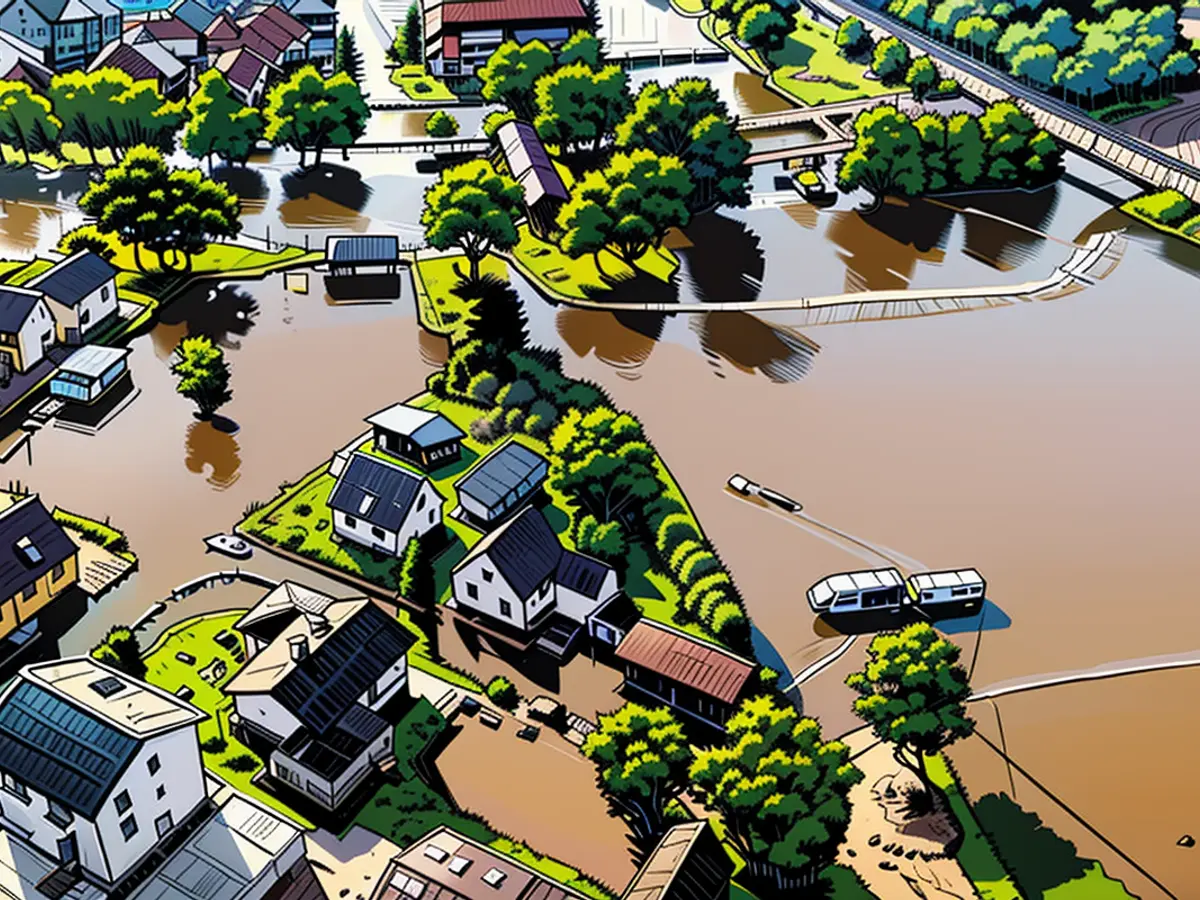- Natural disasters cause billions in damage
Floods, severe weather, and other natural disasters caused worldwide damages of 120 billion dollars in the first half of the year, resulting in 4,500 fatalities. Although the damages are lower than in the first half of 2023, they are higher than the ten-year and thirty-year averages, according to the half-yearly catastrophe report by reinsurer Munich Re. "When viewed over a longer period, the total damages are clearly increasing," said chief climatologist Ernst Rauch. Notable events in the first half included major floods and a series of severe weather events in the USA.
The figures: Of the 120 billion dollars in overall economic damages, 62 billion were insured, according to Munich Re. The most expensive event was the New Year's earthquake of magnitude 7.5 in Japan, which caused estimated total damages of around 10 billion dollars. In the first half of 2023, the worldwide total damages caused by natural disasters were 140 billion dollars, while insured damages were slightly lower at 60 billion dollars. A significant factor was the devastating earthquake in Turkey and Syria in February 2023, which resulted in over 50,000 deaths. In the affected earthquake region, relatively few people and businesses are insured against natural disasters.
Long-term increase in catastrophe damages
Munich Re has been documenting worldwide natural disaster damages for many decades, as this is crucial for calculating insurance premiums. "The ten-year average of overall damages is just under 90 billion dollars," said Rauch. "The sums of insured damages show the trend even more clearly: the 62 billion dollars in the first half of this year are almost double the ten-year average of 37 billion dollars."
Severe weather events are occurring more frequently and with greater intensity
The long-term increase in damages is attributed not only to the increasing frequency and intensity of severe weather events, which scientists attribute to climate change. Rauch noted two notable trends in the first half of the year: "We had not only the floods here at home in Bavaria and Baden-Württemberg. The unusual aspect was floods in countries where large floods are atypical, such as the United Arab Emirates, particularly Dubai, and adjacent regions like Oman."
One would have to look back 70 years in the statistics to find comparable events. "Similar observations were made in Brazil with rainfall and floods on an unprecedented scale in the last 70 to 80 years."
North America particularly affected
The second notable trend is the many severe thunderstorms in the USA, with 1,250 tornadoes counted from January 1 to June 30. "Four of the five most expensive insurance events in the first half of 2024 were severe weather events in the USA."
The course of the North Atlantic hurricane season, which ends in the fall, will play a significant role in the second half of the year. One factor is the unusually high water temperatures in the North Atlantic that have persisted for some time.
The likelihood of a severe hurricane season has increased.
"Record surface water temperatures are a key factor in triggering and intensifying tropical cyclones," said climatologist Rauch. "The second factor is the onset of a so-called La Niña phase, as predicted by the U.S. weather service NOAA." Both increase the likelihood of above-average hurricane frequency in the North Atlantic.
For insurers, this means higher costs: "More frequent and severe weather-related disasters lead to insurers facing increasingly high payouts," said Rauch.
The Commission has released a statement expressing concern over the long-term increase in catastrophe damages, attributing it to the increasing frequency and intensity of severe weather events. The Commission has also noted the occurrence of floods in unusual places, such as the United Arab Emirates and Oman, which are typically not prone to such disasters.








